Raids, Robberies, High Stakes and Drunken Players
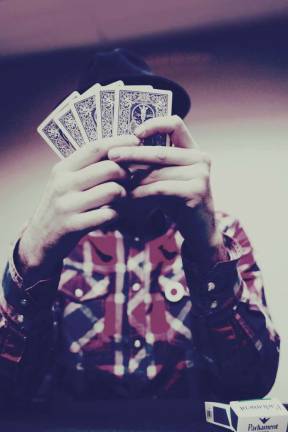
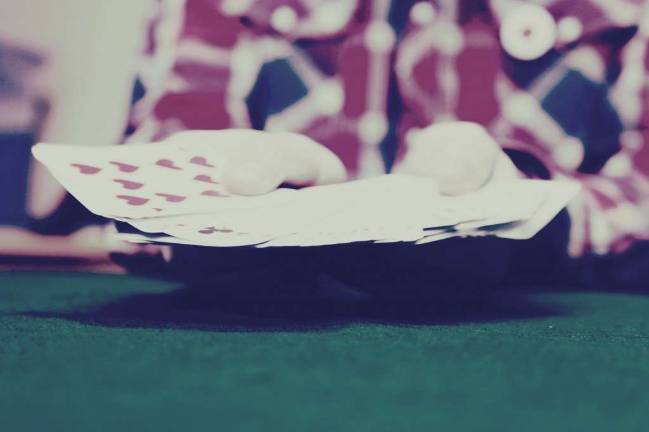
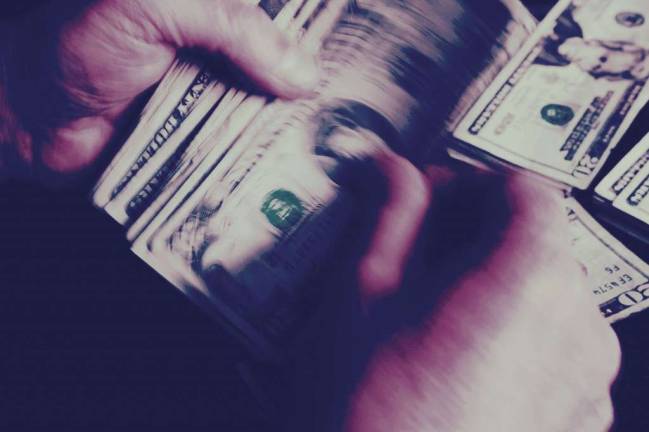
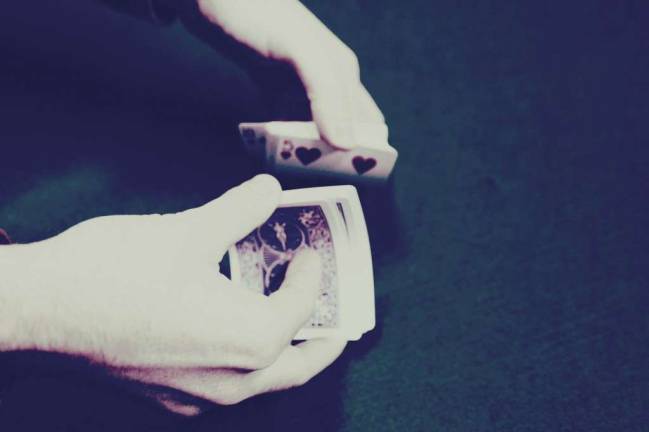
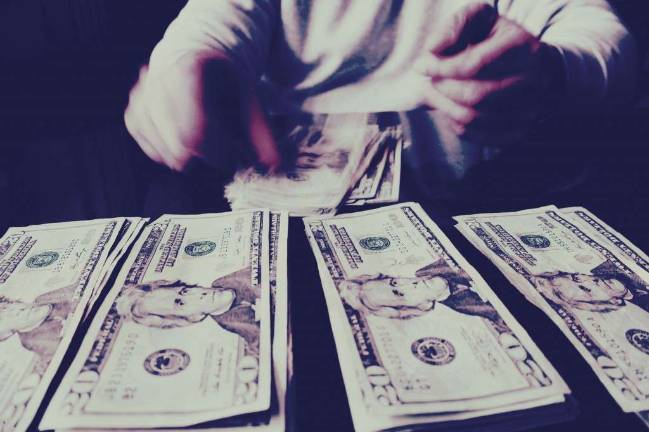
[](http://nypress.com/wp-content/uploads/2012/02/Pokerman11.jpg)Mooshu, a smooth-talking native of the Lower East Side, decisively crushed his cigarette before disappearing through a rusty black gate and into an unassuming townhouse on St. Mark's Place. On a Sunday night, he entered the basement door after descending a crumbling staircase and faced a camera attached to the door of the ground-floor apartment. A few seconds later, the door peeped open and a brawny man decked in leather greeted Mooshu with a fist pound.
As he walked in, two felt-covered tables flanked his left, one of them full of men belonging to every creed, all eyeing the growing pot in the middle of the table. Farther down the corridor there was a makeshift wall with a hole carved in it. This served as a kitchen, where players exchanged chips for money through the window.
"This is where I work," said Mooshu.
Mooshu, a nickname given him by his fellow poker dealers, has worked at illegal underground poker clubs for the last three years. Raids, robberies, high stakes and drunken players are all part of his job description, and his last place of employment-the digs on St. Marks-was shut down only two weeks ago by police. He is a 19-year-old part-time college student and a full-time card dealer.
And for the past year, he was a scheduled dealer for cash poker games at this ground-floor apartment in a grimy townhouse on St. Mark's Place.
Two types of poker are played in this world: tournaments and ring games, or cash games. Tournaments have anywhere from two to 1,000 people playing, and the winner is the person who ends up with all the chips. Others place bets based on the time they are eliminated. There is typically an entry fee, but the chips cannot be exchanged for money.
In a cash game, like the ones on St. Mark's, real funds are at stake and the session can go on indefinitely. On a typical weekend night, there could be up to $10,000 in the pot. Employees take rake, what is generally a five to 10 percent portion of the pot for each hand, and this is how the lights are kept on and the bouncers, dealers and cocktail waitresses continue to get paid.
To enter this illicit establishment, patrons have to go through the basement apartment door and face a glowing red security camera posted on its frame. Regulars at the poker club are usually let right in, but newcomers have to present their IDs to the bouncer and get a brief pat-down for weapons before they are allowed to enter.
[](http://nypress.com/wp-content/uploads/2012/02/Pokerman411.jpg)According to a bouncer working the door at St. Mark's, stringency of security depends on where the poker is taking place and what type of game is going on.
"Cash games in the LES usually have bouncers that pat you down for weapons-sometimes you can't even have your cell phone. Some places have gun checks, where you have to give them your gun to put away while you play and then reclaim it before you leave," described Julio, the leather-clad bouncer who greeted Mooshu at the door.
"It's all about the type of game going on, too," he continued. "Tourneys are not too much cash, but the cash games get big and they need more security on deck."
Besides the security at the door, there is a screening process for every new player, all of whom are there on an invitation-only basis, usually extended by a frequent player. Another way poker clubs are promoted is through websites such as theactionfinder.com. The catch to some of these sites, however, is that they either require passwords or other security measures, and each player has to post his employment history to weed out any undercover cops.
"The first place-that was on Avenue C-got robbed and then the cops showed up. Made that place too hot, so we moved here," Mooshu explained of an earlier bust. Security cameras, background checks of players and burly, menacing-looking bouncers are necessary precautions used to prevent robberies or raids by undercover cops.
New York gambling laws state that commercial lotteries and any type of gambling not sponsored by the city or state are illegal. Living in the city, the closest legal gambling fix is in places like Foxwoods or Atlantic City, but they requires a lot of travel.
[](http://nypress.com/wp-content/uploads/2012/02/IMG_357911.jpg)Compare that to the slot machines found in many grocery stores in Las Vegas, and New York City's gambling scene seems nonexistent.
Back in 2005, during what poker players call the "dark days" of underground poker, the NYPD vice squad reportedly raided two popular clubs in New York City, Playstation and the New York Players Club, arresting 39 employees and snatching nearly $100,000 in cash in total. The Broadway Club, Ace Point Backgammon and Chest Studio were also among the clubs busted that year. (The office of the deputy commissioner of public information could not provide citywide statistics on the number of gambling related arrests in recent years.)
Besides the police, the players themselves pose a threat.
"There is really no good way to say it, but it happens. Games will get robbed and people will get shot. Sometimes it's not even a robbery, just an irate player. As long as there is money in a room, someone is going to try and take it," said Travis C., who frequents these underground clubs.
But this tucked-away crevice in St. Mark's is more laid back, giving it a casual, relaxed environment.
Out of the two poker tables set up, one was full that night with 10 players plus the dealer. Salt-and-pepper-haired businessmen, beer-bellied middle-agers and lanky college students, plus enough ethnicities to satisfy a U.N. General Assembly meeting, all congregated in this one small room.
"I meet all kinds of people; teachers, stockbrokers, rich Jewish widows, club promoters-everybody is here. Some of the chillest people I know are the people I've worked with and dealt for," said Mooshu.
College students also regularly play at these underground poker clubs. Jason C., an acne-ridden sophomore from Fordham University, used to spend two nights a week at St. Mark's.
[](http://nypress.com/wp-content/uploads/2012/02/Pokerman511.jpg)"I have a legit job," he said. "But usually I spent my salary there, playing for six or seven hours every night I'm there. I make some money, enough to feed myself for the week and to cash in again, and sometimes I make more money from one flop than I do at work. But it's not about how much money I win, though; it's more about the thrill of playing. And it's about the skill that goes into it."
While many at St. Mark's enjoy the strategy and skill that go into playing a good game, some are there for the money and others are so hooked on the thrill of big bets they become addicted.
"You get your gambling addicts here," said Mooshu, over a smoke and a quick dice toss in the backyard. "A guy comes in here drunk, drops a stack [of money], stumbles out of here a few bills richer or not and comes back the next day still smelling like last night. Win or lose, they're back."
A green tent covers the enclave where dealers and players took their breaks under plumes of smoke, discussing strategy and swapping stories. A middle-aged Chinese man sits despondently in a dark corner, taking heavy drags from his cigarette as the clack of dice continued on the pavement.
"He tilted. He just lost a lot of money tonight," Mooshu continued. "Yo, Jim!" he called out. But there is no response from this unhappy gambler, merely a look of utter loss.
"Tilt is when a player loses a lot of his stack then does something really desperate, like go all in even if he has a bad hand. After that, they come out here looking like Jim," explained Mooshu.
Another story he shared was about a woman who took money from her husband's hidden safe to play poker. The dealers realized this when she paid $700 for chips with old $20 notes. "The husband came and saw that she had the money. But he didn't say anything; he was drunk and just let her play. She comes in a lot and stays for hours and for the most part she doesn't make money. She just bets with her husband's bread and then they leave together and do it all over again some other night."
A resurgence of poker parlors in New York City has seen many open up all over the city. Of course, there are online poker websites that may sate the thirst of poker players, but the experience of playing a live-action game is, for the most part, incomparable for the patrons.
"Yeah, you play online," said one player who wished to remain anonymous. "But this is the real deal, you know? I don't have to haul ass to Atlantic City or Vegas. And anyway, this is way better. The underground life of poker in New York City is better than any fancy table at the Bellagio."
[](http://nypress.com/wp-content/uploads/2012/02/IMG_357711.jpg)This surge of poker parlors has also caused more raids by the cops, according to a floor manager working at St Mark's. "But it's a legitimate business," he continued. "The rent is paid, the employees are paid, the players are kept happy and fire codes are followed."
At 9 p.m., Mooshu ended his Sunday shift and headed to another spot in Midtown, another part of the St. Mark's rooms, where they hold tournament games.
Exiting the spot, one has to be just as discreet when entering, if not more.
"We're gonna take the VIP exit," he said, indicating a peeling white door across the card tables. It creaked open, revealing a dingy, badly lit staircase that leads to the front entrance of the building. One has to crouch low to get up the crooked stairs and exit through the front entrance of the townhouse, allowing patrons the utmost discretion.
And for a poker dealer, that is their best bet.